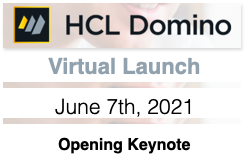On Web Strategy
June 29, 2011 6 Comments
 My old Web 2.0 blog is finally closing due to hosting issues so I’m moving the conversation here going forward. I’m also relocating my large library of old posts and visuals to this blog over the next few weeks. Collectively they’ve had over 12 million views and are witness to an amazing time in the history of the Web, business, and society.
My old Web 2.0 blog is finally closing due to hosting issues so I’m moving the conversation here going forward. I’m also relocating my large library of old posts and visuals to this blog over the next few weeks. Collectively they’ve had over 12 million views and are witness to an amazing time in the history of the Web, business, and society.
It’s been a profound era of change by any measure, and one that we’re fortunate to live through. Over the last seven years we’ve seen the rise of social media, Web 2.0, Enterprise 2.0, and now social business. Put simply, the Web-based world has changed nearly everything about the way we globally connect together and create shared value. For now, this blog as well as ZDNet, ebizQ, Dachis Group, and Hinchcliffe.org, will be where I will continue exploring the emerging edge of business and technology, with this blog focusing more on the Web itself and my other channels focusing more on the enterprise aspects.
I’m renaming this blog to On Web Strategy because I’ll continue to focus on the way the Web works, particularly what makes it so powerful for those that understand it. There’s lots of exposition available online about the changes taking place today, but not enough exploring the specifics of how Web-based networks are driving pervasive change. Among the endless information streams available now, there’s still room for more thorough examination of the way the Internet is co-evolving into the single most powerful platform for self-expression in history. I believe this is true whether you’re a person or a business; there is no other place nearly as compelling, innovative, valuable, or relevant today. And the Web itself, far from reaching maturity, remains the single most exciting — and most rapidly moving — place to improve and transform how we live and work.
 While my primary interest lies in connecting the two too-often loosely connected roads of business and technology, I think the increasing convergence between them is where much, if not most, of tomorrow’s opportunity resides for those that can successfully overcome the obstacles. For its part, social media has become a leading force for value creation in the world along with the rest of our digital footprints, with which we are now creating the richest and most vibrant record of our times. Visionary enterprises are now seeing how to tap into this and join in partnership with the rest of the world to create entirely new types of products and services together with their customers. From the data, it’s clear that social co-creation and other new and closely related models, such as crowdsourcing, are genuinely changing the nature of human activity, especially value creation, control, ownership and other less-tangible qualities like trust, openness, and understanding.
While my primary interest lies in connecting the two too-often loosely connected roads of business and technology, I think the increasing convergence between them is where much, if not most, of tomorrow’s opportunity resides for those that can successfully overcome the obstacles. For its part, social media has become a leading force for value creation in the world along with the rest of our digital footprints, with which we are now creating the richest and most vibrant record of our times. Visionary enterprises are now seeing how to tap into this and join in partnership with the rest of the world to create entirely new types of products and services together with their customers. From the data, it’s clear that social co-creation and other new and closely related models, such as crowdsourcing, are genuinely changing the nature of human activity, especially value creation, control, ownership and other less-tangible qualities like trust, openness, and understanding.
While some organizations and individuals will continue to debate the actual magnitude of the changes that the new low-barrier, high scale, and virtually free tools of self-expression are fostering today in the large, there’s little doubt looking at the macro trends that momentous things are happening. I have certainly been asked, “are these changes as big as the printing press? As big as mass media? How about personal computing” Yes and yes and yes. And much more significant in terms of actual change wrought. I’ve included here a few recent pieces of my research that illustrate the case that the business, cultural, and societal landscape is being remade right now, and doing it quickly in some cases. This includes the following data points:
Trends and Drivers of Work and Life Today
- Social is how we communicate today. There has been a generational change of communication from point-to-point (e-mail) to social in four short years (see first figure above). Certainly e-mail is in decline and will be with us for a decade or two, but it has dramatically lost its prominence and relevance in recent years. For now, social media is the way we increasingly prefer to connect and work together. Traditional organizations have had some trouble catching up to these trends, but I’m finally seeing evidence that they’re doing so.
- Knowledge work is the driver of our world economy. People-based activities centered around the creation and exchange of information (financial services, real estate, education, media, governing, etc.) are what modern economies are built on (see second figure above.) Methods that greatly improve the creation and exchange of information will have inordinate value, especially models that optimize for it, i.e. social media and by intent, social business. Knowledge work is about 60% of the labor force today and growing steadily. The less valuable service economy is growing as well and is also a beneficiary of these new and emerging forms of communication and collaboration.
- Peer production is now the primary motive force for creation and sharing. Centrally controlled models for production in business and government are much less powerful and inordinately more expensive. The creation of information on the “edge”, by individuals, has transformed traditional media as well as the Internet: It’s now made by us, with approximately 80% of information on the Web (see last figure, right) now coming from user generated content. In the future, sensors and other information generators may outpace us, but for now the most important trend is that productive capability has moved decisively into the hands of us out there in the long tail.

What does this all mean? That’s what this blog was developed to figure out. Come back and visit. I’ll be exploring Web strategy and cutting-edge innovations that are likely to have significant impact to the way we run our organizations and live our lives. Please drop me a line if you want to share your ideas, or better yet, contribute them in comments below or in your own blog or social network.



























































Always a pleasure reading you, where ever it is! Cheers
Pingback: A Management Renaissance- Innovating for the knowledge-age — NextForge
Pingback: Open Work: Using Social Software To Make Our Work Visible Again
Pingback: Connecting Digital Strategy with Social Business and Next-Gen Mobility « Dachis Group Collaboratory
Pingback: Connecting Digital Strategy with Social Business and Next-Gen Mobility
Pingback: Connecting Digital Strategy with Social Business and Next-Gen Mobility | Accelerated Marketing Strategies